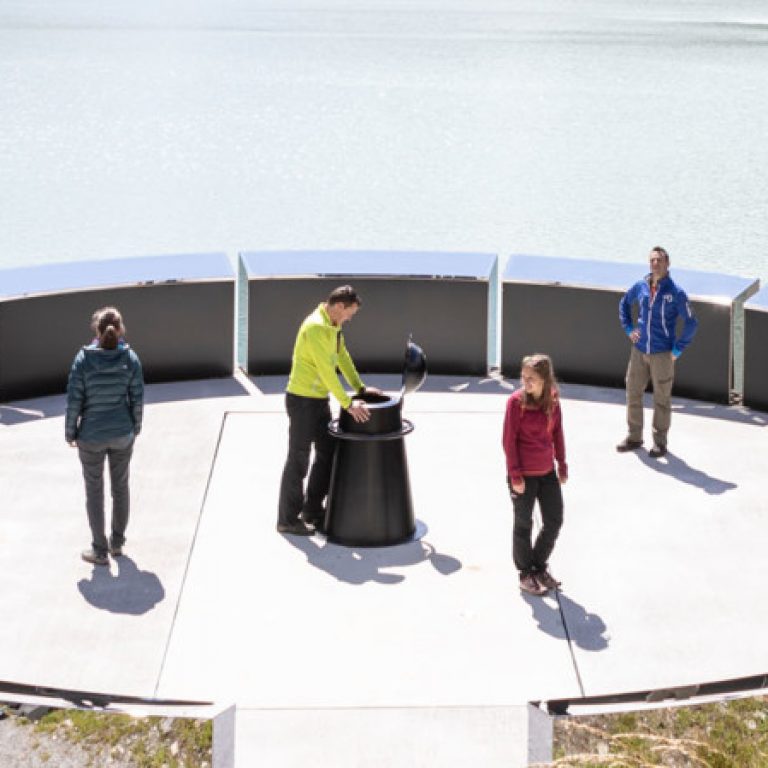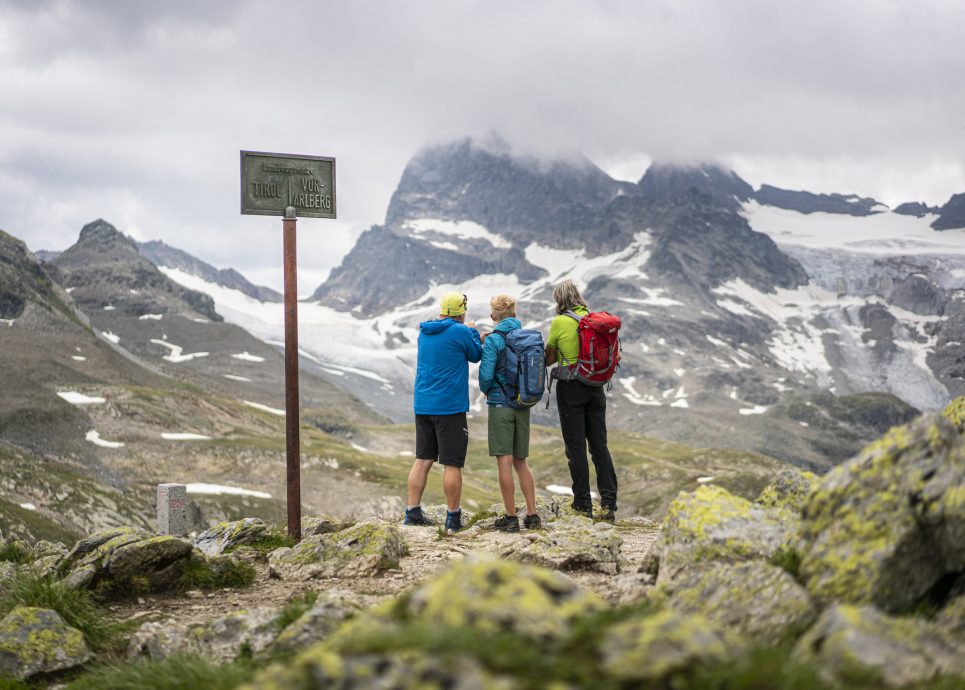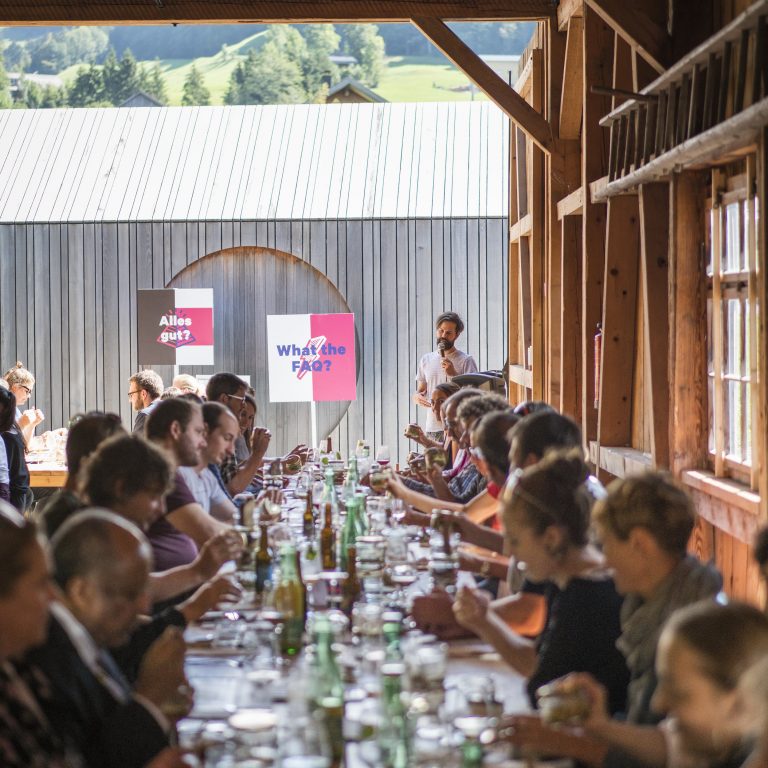


Intentionally setting off towards new horizons always brings both opportunities and limits

C Alte Säge Bezau (c) Dietmar Denger
Why do we travel? The cultural anthropologist Theresa Frank says, ideally to preserve our curiosity and liveliness. An essay about the opportunity for encounters – including those between hosts and guests
People who feel at home anywhere they go don’t deserve to be trusted much.” When the writer George Bernard Shaw said this, he certainly didn’t have the ideal traveller in mind – the one characterised by openness, tolerance, adaptability and a willingness to look beyond their own horizons. Travel (and travellers) has (and have) been criticised – and idealised – for as long as people have been setting off on journeys. But it is particularly industrialised mass tourism as the supposed destroyer of nature and culture that suffers from a rather poor reputation. ‘Blundering tourists’ are frequently the subject of much complaint for their lack of consideration for the local residents and their ‘well, I did pay for it, after all’ attitude.
We are accompanied on our travels by the desire to discover new things and rediscover ourselves.
It is therefore understandable that people today do not want to be thought of as ‘tourists’ as such but rather as ‘travellers’ since the latter remains associated with a little of the splendour of the ‘grand tours’ of previous centuries when education and the broadening of horizons was the goal of the departure.
But one thing is certain: intentionally setting off towards new horizons always brings both opportunities and limits – and the possibility of returning enriched by encounters with others. What does encounter mean? It means being with an other. An other who enters into a relationship with us, who sees us, who responds to us, asks us questions, provides us with answers and enters into dialogues with us. As corny as it may seem, seeking encounters means preserving our curiosity and interest in life. And actively engaging with the world. As well as exploring new boundaries – above all our own – again and again.
A better understanding of the relationship between oneself and the other is essential to understanding that the other is a prerequisite to preventing oneself from falling into stagnation. It is in this way that culture, tradition, customs, identity – whatever term you wish to use to describe the familiar, the supposed it-has-always-been-this-way – lose their rigidity to create a space in which dialogue is able to develop. A dialogue whose authenticity arises from entering into conversation about the exchange and not in elucidating what is supposed to be ‘genuine’ as opposed to ‘adulterated’ culture. To quote ethnopsychoanalyst Mario Erdheim: “Instead of equating culture with what you know and are already acquainted and familiar with, it should be set in the context of what is not commonplace for us: culture is what arises from engaging with what we regard as foreign.”
Encounters play a special role on journeys: being on the move and curious about the new surroundings make us more open and accessible but they do, at the same time, when we find ourselves on unfamiliar ground, make us more susceptible to becoming unsettled if not more vulnerable. We are more dependent on others than is otherwise the case. How people enjoy sharing tales of how they were only able to communicate with hands and feet or how a single glance or gesture was enough to engage with the locals. Even if it sounds like a romantic cliché, they do express a desire for encounters that are positive.
The longing to discover something new through travelling and to rediscover oneself in the process and the yearning of finding a place of where one has arrived and returned to oneself are not necessarily contradictory. How else could the phrase ‘being at home on the road’ become a popular motif for travellers? Making it easier for guests to settle into temporary homes is an important task for hosts. In classical ethnology, hosts are always ascribed a certain power over their guests. The various rituals enacted to welcome them, for example, serve not least to domesticate the ‘intruders’, i.e. to integrate them into the community for the duration of their stay. Hosts therefore wield the creative power over the nature of the encounter, they stake out the setting and determine to what extent guests are allowed to become involved. And, finally, being a guest means placing your fate in the hands of others, being dependent on and, last but not least, being indebted to them.
Hosts in the context of mass tourism may often be perceived as something between a ringmaster and animal tamer, as someone who entertains the masses while keeping them in check at the same time. The tourists, on the other hand, are often reduced to
their role as paying guests. The exchange between hosts and guests in tourism is, of course, always anonymous and staged to a certain extent. The fact that the respective roles are clearly defined also helps people find their way and feel safe because both hosts and guests are able to draw on more or less clear patterns of interaction. Specific stereotypes therefore do not automatically prevent the encounter from being constructive and mutually enriching. They do, however, become problematic when the other is actually only viewed as an exchangeable entity – or it is only possible to see him or her as such – because the context of the encounter is (or has become) too anonymous and literally too massive. Just as hosts are no longer able to perceive their guests as individuals, there is also the danger that the places the tourists visit degenerate into backdrops and the locals into bit players, i.e. consumable elements in a world of recreation and experience.
Hospitality is particularly important in the Alpine region.
If, however, tourism is thought of not merely as an industry but becomes more focused on the social and empathic aspects, encounters between people advance from being merely something incidental that has happened to becoming central to the entire experience. Playing host to guests is something enriching, the personality and everyday life of the hosts are a source of interest to the travellers. That is particularly true in the Alps, where hospitality is not only important but frequently essential to survival in the face of inhospitable nature – which may sometimes be extreme. A fact to which the mountain huts and shelters bear witness that are open for everyone to use at any time.
It is in this way that the ‘feeling of being at home everywhere’ could also be reinterpreted as an opportunity to feel safe and secure thanks to authentic encounters in foreign realms. Because that is what actually makes travelling so attractive: throwing yourself into the unknown and finding new homes when doing so. Creating spaces where encounters are able to take place to this end is certainly a fruitful endeavour.

Theresa Frank, born in 1980, studied cultural and social anthropology as well as comparative literature. She spent many years freelancing as an editor and proofreader before joining a scientific publishing house in Innsbruck. She has also written a book on the subject: ‘Begegnungen. Eine kritische Hommage an das Reisen’ (LIT-Verlag, 2011).